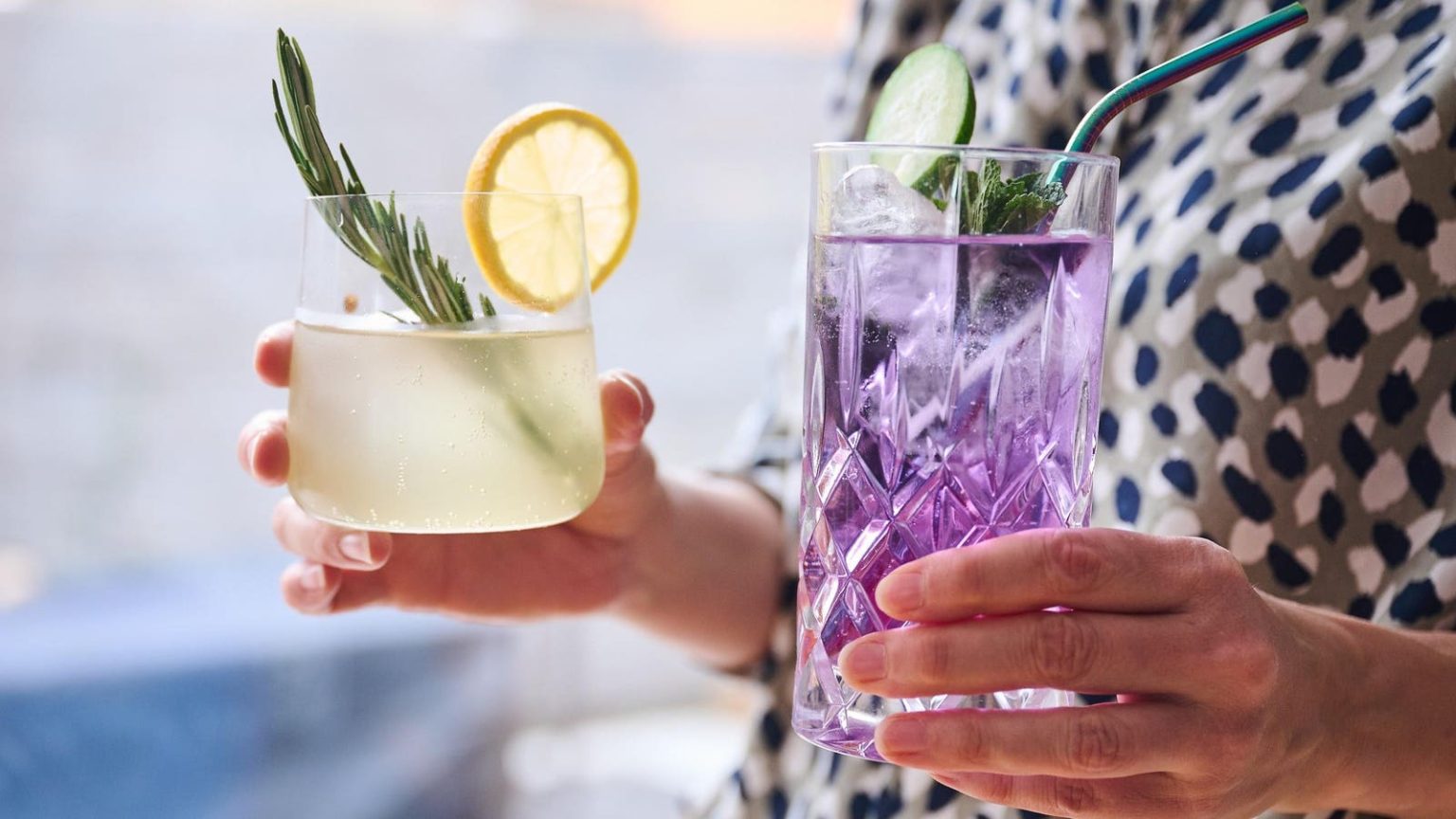Mindful drinking is not a passing trend. CBD-infused beverages are. In the years to come, young consumers will be lowering their alcohol consumption, affecting the overall hospitality and grocery retail sectors. A rise in the wellness culture and heightened consideration for mental health are driving this trend as consumers seek low or non-alcoholic alternatives. Global drinks manufacturers, along with small challenger brands, are addressing this need and contributing to reshaping the drinks industry with 0% beers and other alcohol-free beverages. Despite this, grocery retailers, bars and restaurants are lagging behind when it comes to offering enticing, diversified non-alcoholic beverages beyond soft drinks and fruit-based blends.
The drinks industry is responding to the slow-rising trend of mindful drinking
Soft drinks and fruit juices used to be the only options for consumers wishing for an alternative to alcoholic beverages. Now, both leading alcohol brands and small disruptors are releasing low or non-alcoholic alternatives to cater to a growing behavior: mindful drinking, or a reduction in alcohol consumption. Most beer companies, including Asahi, Heineken and Carlsberg offer non-alcoholic beers, the most popular segment within the no and low-alcohol category. In fact, Asahi Europe and International plan for non-alcoholic products to account for 20% of their portfolio by 2030, similar to the ambitions of Anheuser-Busch.
Outside the beer segment, many disruptive brands have brought attractive innovations to the market, including spirits and aperitifs. Companies like Everleaf, Seedlip and Ghia have leveraged the power of plants and botanicals to deliver complex, tasteful blends that can be used to create drinks that have nothing to envy to alcohol-based cocktails. The interest in this segment is taken seriously by historic beverage players too, as Pernod Ricard now offers a rapidly growing portfolio of non-alcoholic brands (six at the moment), reflecting the increasing demand for this new drinking alternative.
This demand is particularly visible in the United Kingdom and United States, where consumers are looking for alternatives mainly in social settings. Overall, the drivers of this consumption shift are rooted in health precautions, both from a mental and physical standpoint. This results in a growing number of consumers wanting to experiment with mindful drinking, which is still made difficult given the lack of options available in a majority of social venues and grocery stores.
Traditional distribution is holding the non-alcoholic category back
Research by Distill Ventures showed that eight in ten bartenders in Los Angeles believe non-alcoholic drinks are part of a growing trend. Unfortunately, a majority of bars and restaurants still don’t offer an enticing mocktail menu, let alone non-alcoholic wines and spirits. The segment of the market asking for it is still very niche, but it is a mistake thinking that only abstinent consumers would be interested in such options. Indeed, 82% of non-alcoholic drinkers also consume alcohol, highlighting that this trend is more about moderate consumption rather than complete abstinence. Currently, most hospitality venues that offer a well-developped,, enticing non-alcoholic menu are venues that are serious about their beverage menu in general, or hotels with wellness at the core of their value proposition.
E-commerce and delivery players are adapting rather well. Online platform Drizly carries 80% more non-alcoholic brands than last year, as shared in a survey commissioned by the drinks provider. Over 90% of Drizly’s retail partners now carry at least one non-alcoholic option, highlighting a slowly rising trend. Premium grocery stores such as Erewhon and Wholefoods have also expanded their assortment to welcome such options, but traditional distribution is currently holding the category back. Maintream grocery retailers are lagging behind when it comes to offering a wide assortment of alcohol-free options, with sometimes just one or two 0% beers or wines available. One of the big challenges for retailers is defining how big the demand actually is, and where such products should sit on shelves. Some retailers are however starting to experiment with and respond to alcohol-free demand, working in partnership with beverage companies. In the U.K, Waitrose partnered with Diageo to design a no and low alcohol section in store, side by side with beer, wine and spirits rather than soft drinks. This type of initiatives facilitates in-store navigation, caters to a growing demographic and can even attract traditional alcoholic drinkers looking to cut back on alcohol.
Overall, traditional retailers and hospitality players have been slow to meet growing demand and curiosity towards mindful drinking, a mistake given the rise in moderate drinking habits made more apparent given the current cost-of-living crisis. On-premise venues are often where consumers first experiment with non-alcoholic alternatives given the social context of those, but hospitality venues still require some level of education when it comes to offering appealing, innovative beverages. The same goes for grocery retailers, hesitant to take the lead and devote much shelf space to the segment. To truly unlock this category, beverage players will have to work hand in hand with retailers to educate them on the best go-to-market strategy, while also needing to educate consumers to understand why such alternatives are often priced higher than alcoholic beverage, the second barrier to consumption after availability today.
Read the full article here





